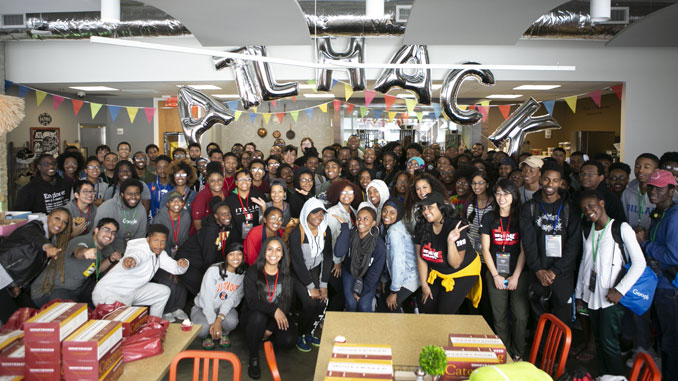
By Chris Anders
Data News Weekly Contributor
Young professionals of color face many obstacles when trying to enter the tech industry for a career. Statistics show the obvious: minorities are at a severe disadvantage when it comes to being employed by tech companies, as they lack a pipeline into the industry. In recognizing the lack of diversity and opportunity for minorities in gaining career paths to major high tech corporations, one tech giant is working to change this by collaborating with historically black universities across the country.
“The Google in Residence program goals are to give students a different perspective, an industry perspective, as opposed to just an academic perspective,” said Aaron Gable, a Google technician who taught courses in computer science at Xavier University of Louisiana in the Fall 2018 semester. Gable joined Google in 2012, and has six years experience teaching. He now swaps his day job of leading a team of eight engineers for office hours and training teams of students for regional hackathons.
The Google-in-Residence program, which started in 2013, sends instructors from Google’s headquarters to a selected minority-serving institution for an academic year. This prestigious program is only available at select Hispanic Serving Institutions, and Historically Black Colleges and Universities around the country, with both Dillard University and now Xavier, both in New Orleans, being chosen for the successes in the sciences.
Google in fact, is attempting to equip HBCU students with the tools to succeed in their career. In 2017, one percent of Google’s workforce was African American. In 2012 at Howard University, Google first piloted a partnership with an HBCU. Since then, the program has expanded to 16 other institutions across the country including Morgan State University, Florida A&M University, Prairie View A&M University and Spelman College, among other HBCUs across the country. During the fall 2018 semester, there were 11 Google-in-residence programs being taught at various HBCUs and HSIs. The development of the residency program has been incredible to watch, Gabel pointed out.
Between 1966 and 2008, the total number of science and engineering degrees more than doubled from 184,313 to 494,627 according to the National Science Foundation. Looking at the number of degrees for African Americans, the trend is the same. A study done in 2012 by the Equal Employment Opportunity Commission found that in the past decade, African American enrollment for engineering and science degrees at universities increased by 50 percent. Degrees in engineering and science in recent years have been highly marketable due to the boom in technology, but at the same time, minority graduates have not comparatively grown in numbers in the tech workforce.
“I think that many companies don’t necessarily see issues that they have with diversity and inclusion,” said Kaycee Tate, a freshman computer science major a Xavier.
A 2014 study from the Equal Employment Opportunity Commission uncovered that there are nearly five times the amount of white people with jobs in the tech industry than African Americans. For private industries 63.5 percent of employees are white compared to the 14.4 percent of people of color. In high tech industries it is even more lopsided, white employees total 68.53 percent of the company while African Americans only make up 7.4 percent. Tech companies must take action to provide equal opportunity for everyone.
“I really admire the steps they’ve taken to try to repair this problem. Working with students at HBCUs is a great way to make sure that we’re given the tools necessary to succeed in the field. A lot of other PWIs often have more resources and opportunities than we tend to have, so Google giving us some opportunities of our own is definitely much appreciated,” Gray said. Resources such as access to internships and participations in hackathons allowed Gray and her classmates to work with other Googlers, gain experience, and broaden their network with other black computer science majors at other HBCUs.
Recommended For You.

Data News Staff Edited Report
Congratulations!!
NAACP ACT-SO NEW ORLEANS
The NAACP ACT-SO (Afro-Academic Cultural, Technological and Scientific Olympics) is


Be the first to comment